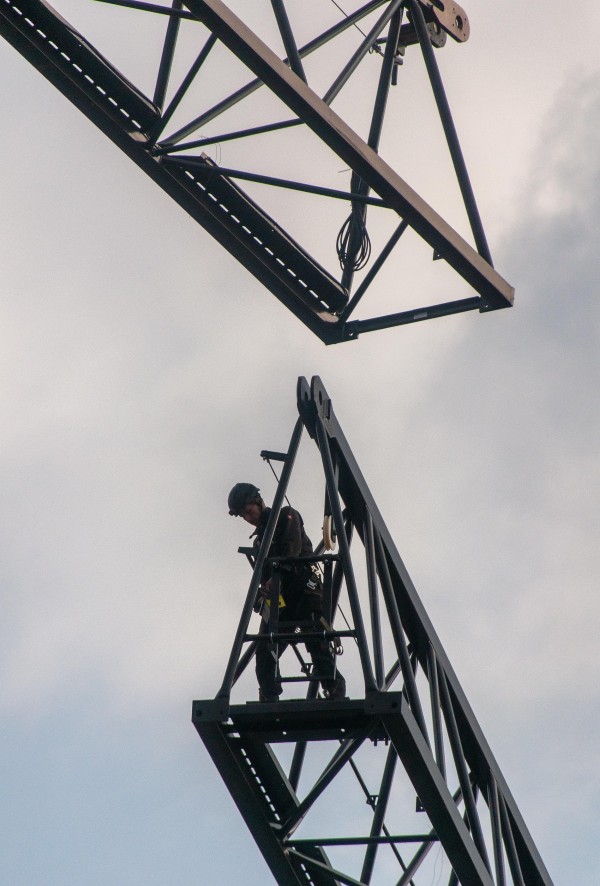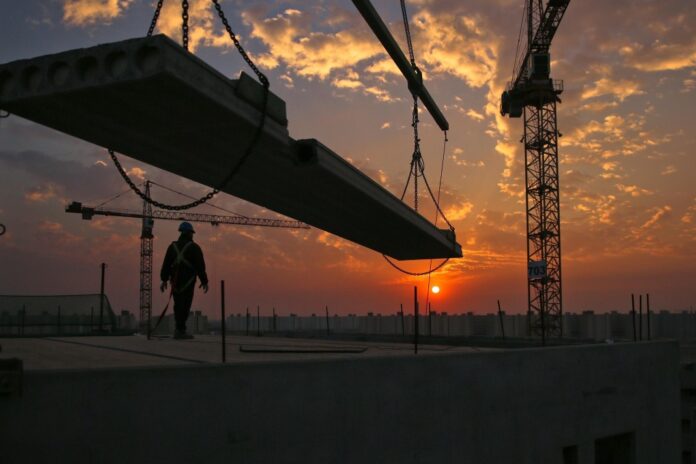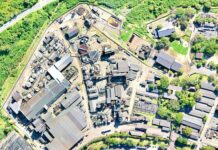South Africa is known to have great plans, but often lacks the follow-through required. Today, we are bringing an end to that reputation. Today, we are taking a concrete step to show people that they can judge our progress not through our words, but through our actions.
It is an all-too-common story that in South African towns and cities, infrastructure projects lay abandoned and half complete. In too many places, infrastructure is in a state of decay, with water and electricity interruptions a daily reality. Infrastructure budgets and grants remain unspent, while poor planning leads to dysfunctional buildings. And the state has proven itself unable to complete projects on time and within budget.
Global research has shown that where infrastructure spending is increased by 1% of GDP, the economy grows by an additional 1.5%. And in an environment such as South Africa, where we have battled near stagnant economic growth and unacceptable high levels of unemployment, that economic growth is what we desperately need. Because a growing economy is the essential ingredient for job creation. Additionally, the success or failure of infrastructure in our towns and cities holds the key to our economic growth and job creation projects.
When trains fail, water pipes burst or roads are closed, it is our economy that suffers leading to unnecessary job losses. The City of Johannesburg knows this all too well. This is why the Government of National Unity has made it its number one priority to grow the economy and to create jobs.
The complexity of our infrastructure challenges demands a united front.
In the nine months since I have been in office, we have worked tirelessly to reform the Department of Public Works and Infrastructure to become the economic delivery unit. It remains my goal to turn the Department into a highly effective vehicle which can drive our infrastructure agenda. And, indeed, we are turning a new leaf in the Department after many years of neglect and decay.
The Department is becoming a serious player in achieving South Africa’s developmental goals. Over the past few months, we have strengthened the Department through the filling of key vacancies and introduction of a new accountability mechanism. This year, we also launched a skills audit within the Department to ensure we have the skills necessary to execute our mandate.
During the second meeting of the Minister and Members of the Executive Council (MINMEC) responsible for Public Works and Infrastructure from across the country, we also learned of the slow pace of delisting of non-performing or corruption-accused suppliers. Only one company has been delisted from supplying to the Department since 2002.
This is unacceptable and needs to be urgently addressed if we want to reverse the culture of impunity. This is why we have started working to reform our blacklisting policy which will ensure that contractors who underperform or engage in unethical practices will no longer have the privilege of working on public projects.
…we have started working to reform our blacklisting policy which will ensure that contractors who underperform or engage in unethical practices will no longer have the privilege of working on public projects.
The Construction Industry Development Board has also been tasked to get ahead of underperforming contractors and blacklist them without delay, and to ensure that they are unable to gain any tenders from any sphere or entity of the State. Within the months ahead, the pace at which companies are delisted should be rapidly increased, with over 40 companies facing blacklisting.
 We are transforming Infrastructure South Africa (ISA) into the central point for all major infrastructure projects in South Africa. The conclusion of the first bid window for project preparation valued at R180-million attracted 220 bids valued at R1.23-trillion. It is thus clear that South Africa does not have an infrastructure pipeline problem. At the 2025 Sustainable Infrastructure Development Symposium, we look forward to announcing the winning bids for this window (see more about the Symposium here).
We are transforming Infrastructure South Africa (ISA) into the central point for all major infrastructure projects in South Africa. The conclusion of the first bid window for project preparation valued at R180-million attracted 220 bids valued at R1.23-trillion. It is thus clear that South Africa does not have an infrastructure pipeline problem. At the 2025 Sustainable Infrastructure Development Symposium, we look forward to announcing the winning bids for this window (see more about the Symposium here).
ISA is leading an innovative pilot project at four municipalities, through the “adopt-a-municipality” programme, where ISA will play a greater role in planning, execution and delivery of projects in these test cases. This will help directly address the poor infrastructure delivery we see on a local government level. We all know that it is at the local government level where public infrastructure failures are felt first-hand.
To improve our infrastructure delivery, the Council for the Built Environment (CBE) has a major role to play. CBE, under the leadership of Dr Msizi Myeza, has proven itself more than capable of helping professionalise the industry to ensure that projects are delivered on time and within budget.
One of the key areas the CBE can help to improve the state’s functioning is with the Infrastructure Audit Programme. The programme represents a game-changer for the Department of Public Works and Infrastructure to ensure that there is always compliance and optimal resource utilisation.
Over the years, the state has become overly reliant on external consultants. Many government agencies depend heavily on external expertise, which has led to high costs and inefficiencies. While consultants play a role, it is imperative that we build internal capacity within the Department and our entities to reduce this reliance and ensure sustainable project delivery.
The Infrastructure Audit Programme
To address these challenges, we are launching the Infrastructure Audit Programme. This is a strategic initiative that will help strengthen internal auditing capacity within the Department and our Property Management Trading Entity.
The primary objectives of the Infrastructure Audit Programme are to:
- Ensure compliance, risk mitigation and optimal resource utilisation.
- Address gaps in project execution, including planning, design and procurement.
- Align our efforts with the National Development Plan to ensure that infrastructure investments contribute to economic growth and job creation.
- This programme will introduce built environment professionals into the auditing process, providing technical expertise in key disciplines such as construction management, quantity surveying, engineering and property valuation.
The first phase of implementation, which began in 2024, has already deployed 15 practitioners – a dynamic mix of graduates and registered professionals – who are now actively working on high-risk areas such as immovable asset management, lease agreements and facilities maintenance.

By developing internal capacity, we create jobs for young professionals and reduce reliance on external consultants, strengthening infrastructure delivery while empowering our people.
The success of this initiative depends on collaboration between government entities, professional councils and the private sector. We must work together to strengthen governance frameworks, share best practices and innovate in infrastructure project monitoring and reporting.
To truly redefine public works, we must embrace a new approach – one that sees collaborative partnerships between the public and private sectors as central to our success. There’s no-one quite like the private sector to lead the charge on new interventions with infrastructure delivery. We know that the government cannot do it alone.
To truly redefine public works, we must embrace a new approach – one that sees collaborative partnerships between the public and private sectors as central to our success.
The complexity of our infrastructure challenges demands a united front, where capability, innovation and accountability are shared. Together, we can turn South Africa into a construction site – a place where every infrastructure project lays the foundation for future growth and opportunity.
Together, we can build South Africa.









